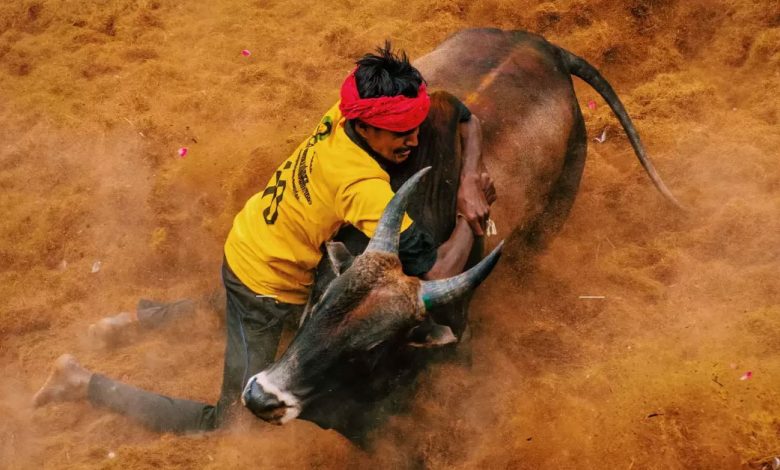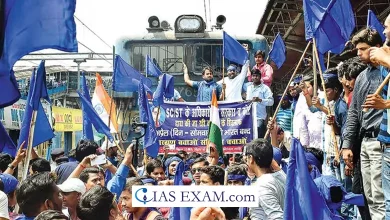UPSC Editorial Analysis
SC judgment on Tamil Nadu’s stand on Jallikattu
(Syllabus-GS Paper 1,2, Art and culture,Judiciary)

Context-Recently the Supreme court upheld amendments made in 2017 by the Tamil Nadu Assembly to the Prevention of Cruelty to Animals Act ,1960, facilitating the smooth conduct of the sport with stringent regulations as valid.
About Jallikattu:
- Jallikattu is a traditional rural sport of Tamil Nadu which involves bulls.The sport is similar to the bull race Kambala of Karnataka involving two buffaloes running in muddy fields during the winter months.
- The sport involves sturdy bulls being let loose into the arena and being chased by men who are considered winners if they manage to get hold of the humps,ride the animal and take control over it without being thrown off.
- The sport is celebrated in the month of January during the Tamil harvest festival of Pongal.
- The sport has references in the Silappatikaram, the great Tamil classical epic.
The controversy
- Over the years animal rights advocates have been arguing regarding the cruelty done against bulls in the name of sports.
- They believe what appears to be the bull’s ferocity is the flight response of the animal in response to fear.
- In the past cruell activities have taken place in the sport like beating the bull, twisting their tails and other acts that inflict pain.
Acts and laws underlying the issue
- In 1960, the Union government enacted the Prevention of Cruelty of Animals(PCA) act that criminalized different types of activities that amounted to cruelty to animals.
- In 2014, the supreme court declared Jallikattu illegal, terming it as cruel and causing pain and suffering to the animal in the Animal welfare Board of India Vs A. Nagaraja case.
- The state mentioned that the subject of animal cruelty falls in the Concurrent list of the seventh schedule of the constitution.
- The Tamil Nadu government hence legalized Jallikattu amending the PCA Act. The new amendment PCA 2017 defined the sport as involving bulls to follow traditional culture and preserve the native indigenous breed of livestock and people’s right to conserve their culture.
SC Ban on Jallikattu
- In 2014 in a landmark verdict the supreme court imposed a ban on Jallikattu and similar events saying that act was “anthropogenic” and it protected the interest of spectators, participants and organizers but not the animals
- The court cited the ‘FIVE Freedoms’ as recognised by the World health Organisation for Animal Health (OIE) –
- Freedom from hunger, thirst and malnutrition
- Freedom from fear and distress
- Freedom from physical and thermal discomfort
- Freedom from pain,injury and disease
- Freedom to express normal patterns of behavior
The Present SC ruling
- In the Latest SC ruling , the bench accepted the basic argument of jallikattu being a part of the cultural heritage of the tamils. It said that whether something was part of culture or not cannot be examined by the judiciary as it would defer to the legislature’s view.
- The SC deferred from its 2014 verdict that earlier rejected the claim over the traditional and cultural value of the sports.
- The court finally legitimized the bovine sport an other similar sports with regulations and reforms.





.png)



